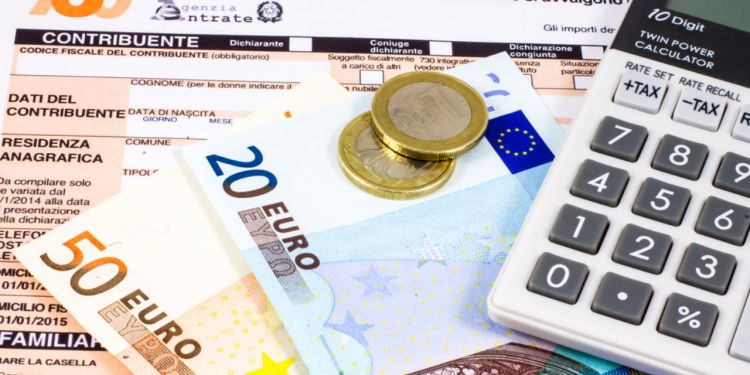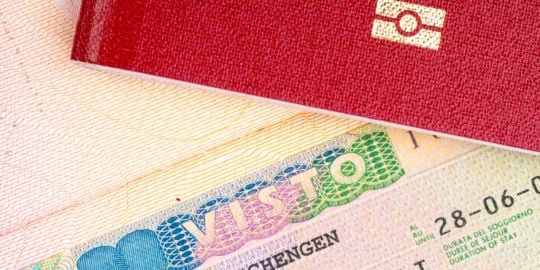Income tax in Italy

If you live in Italy, it is a legal requirement to pay imposta sul reddito or IRPEF (income tax), in addition to corporate tax (if relevant), VAT, and Tax on services. Anybody living in Italy is obliged by law to pay their worldwide income. If you have lived in Italy for less than 183 consecutive days over a 12 month period, you only pay tax on the income you earned in Italy. The fiscal year runs from January to December.
Good to know:
Income tax is deducted at the source and varies according to your job's nature and field, your employment contract, and other factors such as your marital status.
Married couples have to fill in their tax declaration forms individually, with any revenue from your property divided into two equal shares.
How much will you need to pay in Italy?
In general, income tax varies depending on:
- Real estate income (redditi fondari)
- Capital income (redditi di capitale)
- Work income (redditi di lavoro dipendente)
- Independent work income (redditi di lavoro autonomo)
- Commercial income (redditi di impresa)
- Capital gains income (redditi diversi)
- Insurance income
Your tax deductions will vary according to which bracket (1-5) you fall in to. These are:
- Tax bracket one (up to € 15,000) will pay a 23% tax
- Tax bracket two (€ 15,000 - € 28,000) - 27%
- Tax bracket three (€ 28,000 - € 55,000) - 38%
- The tax bracket four (55,000 - 75,000 €) - 41%
- Tax bracket five (over € 75,000) - 43%
In addition to this, you will need to pay a municipal tax which amounts to between 0.7% and 0.9% as well as a regional tax of up to 3.33%, which is set by each region and municipality. Thus, there will be differences, for example, between Florence, Milan or Rome, as well as in the smaller neighbouring cities.
If you earn more than €300 000 per annum, you will also need to pay an additional 3% solidarity tax.
Deductions and credits in Italy
You may be eligible for tax deductions in the following instances:
- If you have donated at least €1,032.91 per year to a university, research institutions or religious organisation, or €70,000 per year to any other non-profit organisation
- if you have medical expenses, for instance supporting a person with a disability
- if you are contributing a maximum of €5,164.57 per year to a voluntary pension fund in Italy
- if you are contributing €3,615.20 per year to a health insurance
You may be eligible for tax credits if you reside in Italy and you have:
- purchased real estate property - the tax credit amounts to 4,000 euros at a 19% interest rate
- if you have done renovation work - the tax credit amounts to a maximum of € 36,000 at a 36% rate on expenses. The credit can be extended from 5 to 10 years.
- If you have made donations to legal culture and research foundations or other public institutions, the credit amounts to 19% of the whole amount
- if you have a child dependent: €900 if the latter is less than 3 years old (€800 if the child is more than 3 years old), plus additional €220 if the child has a disability, and additional €200 euros if you have more than 3 children
- if you have an unemployed spouse who will be considered as a dependent -€800 if your income is less than €15,000, and €690 if your income is between €40,001 and €80,000. You will be entitled to €690 euros tax credit if your income is between €15,001 and €40,000.
Self-employed in Italy
If you are self-employed, the same tax brackets apply, but you will need to file your tax return electronically or through a professional intermediary, such as an accountant. You can find the tax return forms on the Italian Revenue Agency website.
Important:
Income tax returns (Dichiarazione dei Redditi) must be filed online before October 2, or on paper between May 2 and June 30. You can also seek the assistance of “Commercialista” or “CAF” offices. Fees apply for this service, but rest assured that the declaration will be made in due form by competent persons.
Double taxation in Italy
You may face double taxation if you have moved to Italy. Thus, you will have to pay tax both in Italy and in your home country. You are then advised to check if your home country has signed any non-double taxation agreement with Italy.
Useful links:
Italian Taxation Agency
Italian Ministry of Economy and Finance
Double taxation convention
Miojob - Income tax calculation tool
Dichiarazione dei redditi – Agenzia delle Entrate









